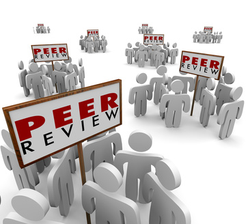Compliance and Regulation Law bilingual Dictionnary
by Marie-Anne Frison-Roche

Self-regulation refers to a system capable of defining its equilibrium by its own forces or, if there is a dysfunction in it, to restore them equally by its own forces. Self-regulation refers to a system capable of defining its equilibrium by its own forces or, if there is a dysfunction in it, to restore them equally by its own forces. Thus, the competitive market for ordinary goods and services is self-regulated. Indeed, since there are no barriers to entry and there is information on products and prices, coupled with mobility of atomized consumers, consumers permanently make functioning competition between offers, this elaborating the right price. If an agent fixes an abusive high price, a third party outside the market will enter it to offer consumers a lower price, the new entrant coveting that rent, and consumers, by nature unfaithful, thus changing supplier. Essential is therefore free trade, the absence of a barrier to entry and the absence of eviction from one undertaking to another, eviction being the most serious anticompetitive practice. Thus, competition law is based on the premise of a self-regulated market. In these circumstances, it is only on a case-by-case basis that anti-competitive conducts, agreements and abuses of dominant position can be found. They are then sanctioned ex post by the competition authority which, by appropriate sanctions, somehow "repairs" the market.
The Regulation is based on an inverse postulate, since it postulates that the market in question has not had the strength to create or maintain its own equilibrium, either because liberalization is too recent or because it there is definitely an economically natural monopoly, either because there is an asymmetry of information, etc. Therefore, there can never be self-regulation. The border between competition and Regulation can not be simpler and need to be more clearly defined. It is true that competition authorities have sought to promote the notion of "competitive Regulation" and that the French law of 4 August 2008 sur la modernisation de l'économie (LME) (on the modernization of the economy) adopted this vocabulary, in particular in the Ordinance of 13 November 2008 came to apply it expressly by modernizing the "regulation of competition". In France, the Competition Authority has become accustomed to labeling its annual report "Regulation", which expresses the claim of this body to practice what it calls "horizontal regulation", intervening directly in the organization of the structures and behaviors. We then leave the traditional and American notion of Regulation as a mark of liberalism, intervening only in the event of structural market failure, to return to the traditional French tendency to the administered economy. The doubt stems from the fact that no structural failure justifies such a general state control over ordinary markets.
It can also be argued that Regulation can be done in a way other than through the adjustment of interests between the bidders and the applicants, not in an exogenous way, in particular by injonctions of public regulator but by the endogenous prescriptions of the actors, for example via "codes of conduct" or "ethical charters". We must then distinguish a moral conception of self-regulation from a sociological conception of self-regulation. The moral conception aims at the idea that operators of the same sector have internalized norms of behaviors that are not natural, but that have been inculcated by impregnation, by moral sense, through ethics. Professional ethics therefore emphasizes professions, in particular the liberal professions, in that they are able to distance themselves from market values, essentially money, in order to prefer moral values to them, essentially the protection of the weak persons, or the protection of the environment, or the concern for future generations. The competition authorities reject the relevance of this ethical self-regulation, which is claimed by professionals such as lawyers and doctors. The European Commission in particular tends to subject them to the ordinary law of companies in a competitive market for the right or the health service. In the same way, banks are treated in European law as "ordinary" firms and not as operators in charge of a public service (financing the economy, caring about social inclusion), still less expressing a specific professional morality.
Today we live at the same time a certain despair in front of the pretension of the self-regulation ethics, because the banks pretended to do it and the information brought by the financial crisis lead to take some distance in relation to this moral discourse, while that at the same time we are called to a renewal of this moral sense in business and in capitalism. Social responsibility can constitute this renewal.
Finally, self-regulation can be sociological when a sector is composed of people who know each other, whether they work in companies, in the administration or in the regulatory body. The case is all the more widespread because it corresponds to the organization of the network society. This is actually a self-regulation by club effect. The danger of this self-regulation is no longer at the risk of a moralizing discourse that is more a matter of marketing, but of an almost unconscious compromise of the regulator, thus captured by habit or friendship. The regulatory system must also seek to break this self-regulation, which is dangerous for the impartiality of the regulator.

comments are disabled for this article